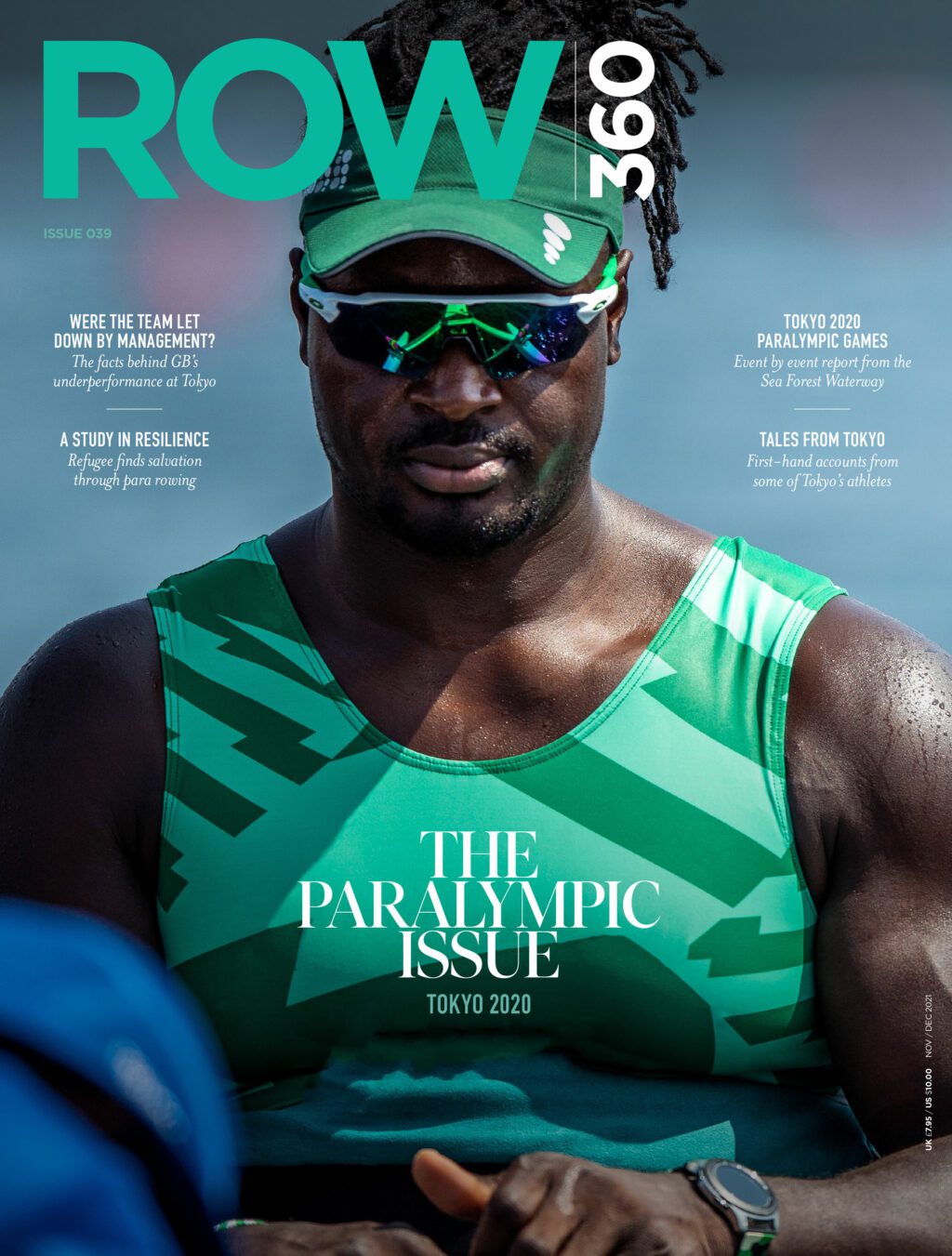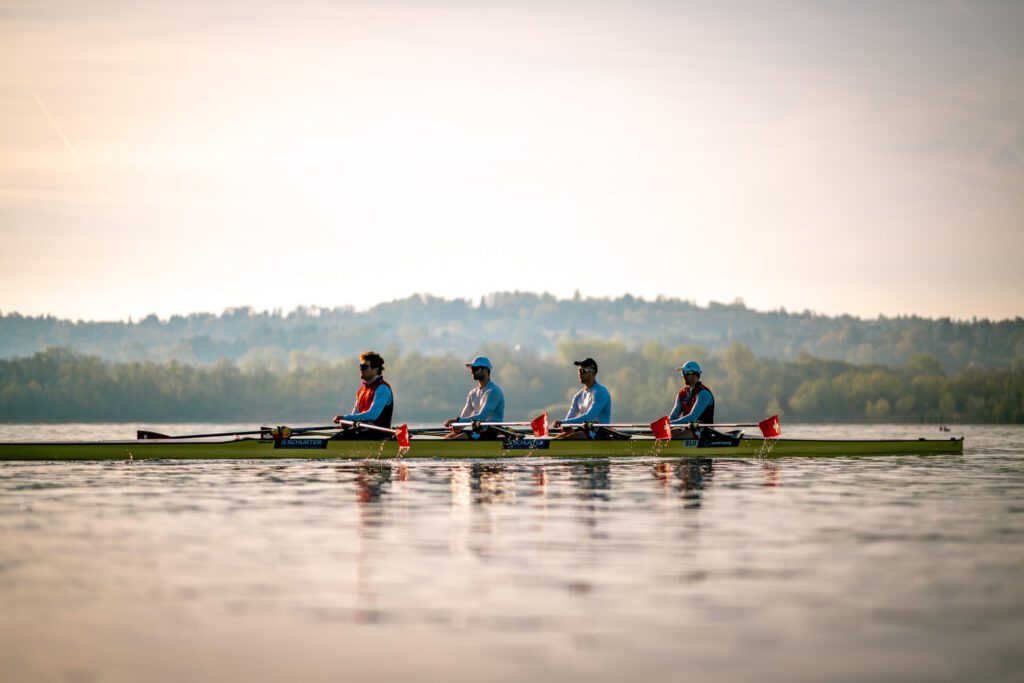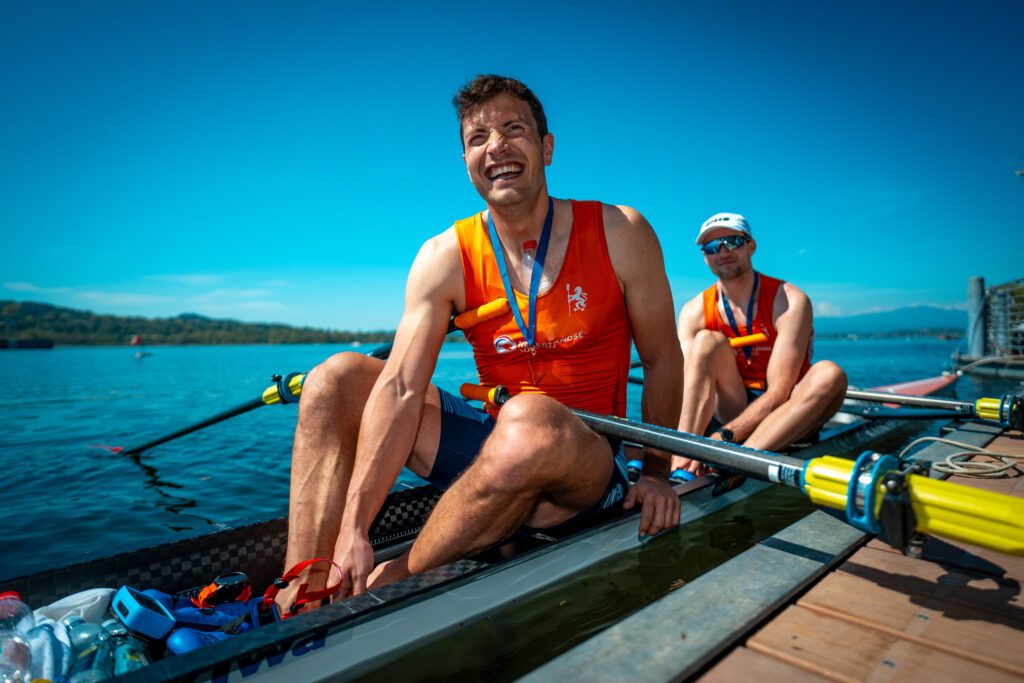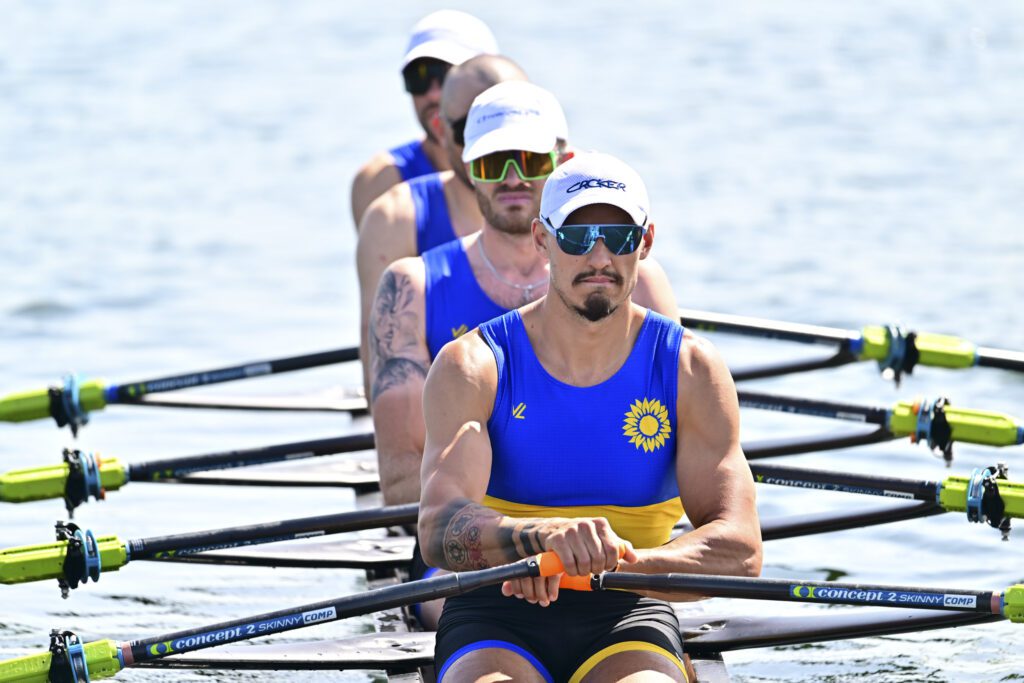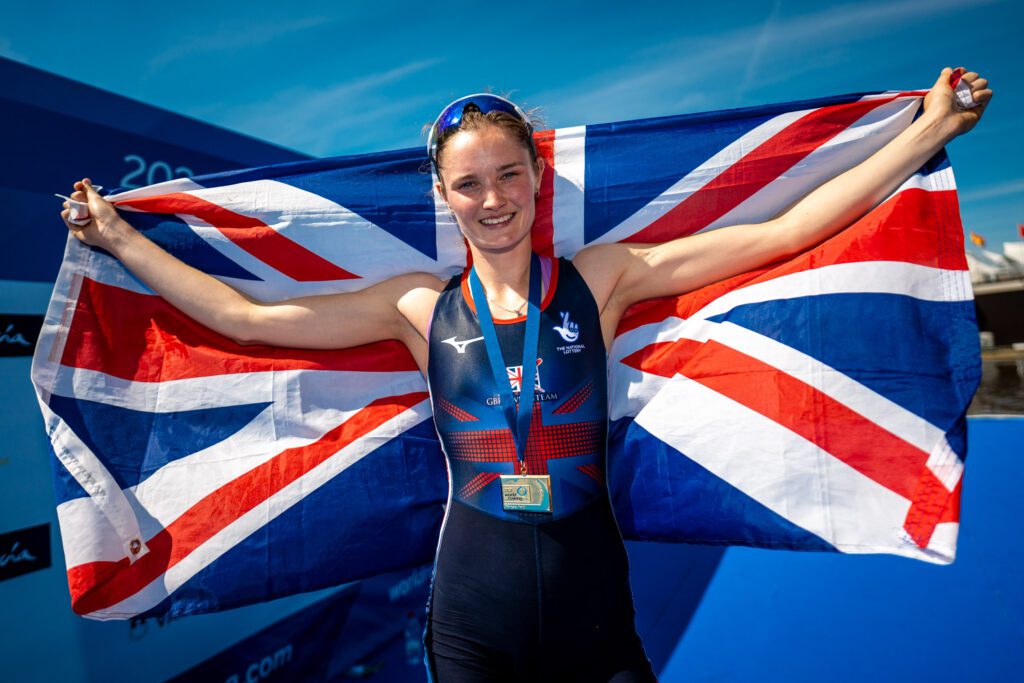It was a stomach-churning drop from 1st to 14th place. The Great Britain rowing team missed their medal target and went from topping the medal table at Beijing, London, and Rio to their lowest rank since Munich 1972. In addition, for the first time since Moscow 1980, the British rowers returned without any Olympic gold medals. The men’s four swerved the podium and severed a six-cycle golden dynasty; Barcelona 1992 was the last time Great Britain returned empty handed from this boat-class.
Athlete comments made in the immediate aftermath served only to feed a headline-hungry press that proclaimed British Rowing to be “tearing itself apart” over an “oarful mess” that had “turned toxic”.
So, what went wrong? And can things be turned around in time for Paris 2024?
Tortoise Tactics
In the wake of Tokyo, the British Rowing office seemed to shut up shop, receding into their shell while waiting and hoping for the media storm to pass. Despite repeated interview requests by Row360, no one has been made available for interview. In August, the offer of an interview with the then CEO Andy Parkinson was subsequently withdrawn.
Behind the scenes action was being taken. Mark Davies, the Chair of British Rowing, instigated a review that sought to uncover the reasons behind the poor performance with a focus on the twelve months prior to Tokyo.
An independent review panel interviewed stakeholders, Olympic and Paralympic athletes, development athletes, coaches, performance staff and support staff. It was a comprehensive investigation that sought to gather information that could be used to analyse Tokyo and drive a future peak performance at Paris 2024.
The findings were delivered to the British Rowing board and on 24th September British Rowing announced the resignation of their CEO, Andy Parkinson. Two weeks later it was the turn of the Performance Director. On a Friday afternoon, news of Brendan Purcell’s departure quietly slid on to the British Rowing website with an accompanying tweet.

Photo British Rowing Head Office, Hammersmith, London
New Blood
For a slew of reasons British Rowing did not get Brendan Purcell’s best performance.
Purcell’s reputation was built on successful stints at GB Canoe Sprint and British Triathlon; he’d relocated to the UK in 2007 after ten plus years at the Australian Institute of Sport.
Speaking about his role as Performance Director of British Triathlon Purcell said, “…challenge daily the accepted wisdom, or current wisdom, and that is something that you need to do, not just at a coach level or an athlete level but at an administrator or management level… that is something that I actually aspire to be part of.” Maybe it was this approach that caught the eye of British Rowing. Riding the wave of British Triathlon’s success at Rio 2016 – they topped the Olympic medal table with three medals, one gold, one silver, and one bronze – the former surf lifesaver and elite canoeist from Queensland, Australia, landed the Performance Director role at British Rowing.
However, the difference in scale between British Triathlon and British Rowing is considerable. For the Rio Olympiad, UK Sport allocated £32,622,862 to British Rowing – more than four times the amount Purcell and his team received at British Triathlon. The difference extends beyond finance to the numbers of personnel at each organisation, particularly at the athlete level. At the Tokyo Olympics the Great Britain team had 41 competitors racing; by comparison there were just five triathletes. In fact, a maximum of six triathletes – three men and three women – can represent Team GB at an Olympics. For rowing that number grows to 48, and is formed by sweepers, scullers, and coxes, across 14 different boat classes.
In the last Olympiad British Triathlon had eight athletes targeting the Olympic podium, and another nine classified as “Olympic podium potential” whose trajectory stretched across eight years. By comparison, the rowing performance centre at Caversham typically houses 60 full-time athletes targeting the upcoming Olympics. These athletes represent the tip of an iceberg, with other funded athletes on the periphery. A large pyramid of rowers exists outside the senior team, training at the British Rowing designated high performance centres. At elite level, triathlon and rowing are altogether different beasts.
“Brendan was trying to run it more like triathlon”
Vicky Thornley
“Brendan was generally a bit overwhelmed with everything,” said Angus Groom, the Olympic silver medallist from the GB men’s quad. Olympic champion, Mohammed Sbihi, who won bronze at Tokyo said, “When the team is 60 odd deep plus staff, can you really please everybody? No. The team sat through so many review meetings over the last four years that were orchestrated because of what Brendan was trying to change in the culture. I want to go back in time and say, ‘I want us to feel rubbish now so that we can celebrate in Tokyo’. The longer lasting hurt and disappointment is what happens in Tokyo, it is not the day-to-day of Jürgen telling us to push hard”.
Henry Fieldman a former world champion who coxed the GB men’s eight at Tokyo said, “The set up was being terraformed into something very different but the reasoning was unclear”.
At the start of his tenure Purcell acknowledged his outsider status; “Not having that rowing background but having worked in two different performance environments, is going to allow me to look at where we can smooth some edges or open up space for people to trial different things… look at things from a different angle… ask the ‘dumb’ questions”.
A team member at Tokyo who is continuing to Paris said, “The decision making was typical of someone that didn’t have rowing knowledge. It was Brendan’s major failing. He was not himself a bad leader, but he was unequipped to deal with the specifics of the role”.
Describing the role of Performance Director in a British Triathlon press announcement in 2013, Purcell: “…the role that I have is to support the environment creation around that coach-athlete from support staff to management to logistics that allows performance to be the primary focus for those people”.
However, three-time GB Olympian Vicky Thornley felt Purcell missed his mark: “There was a lot of extra noise at Tokyo 2020. In the past GB Rowing would create seamless operations. At Tokyo there were loads of different WhatsApp groups. Before it was clear where you had to be and when you had to be there, there was no noise: It was just about your performance.”
Purcell’s appointment throws up important questions. Did British Rowing expect too much from Purcell? Were there measures in place to protect the team against his lack of rowing-specific knowledge? Did British Rowing provide Purcell with a reliable right-hand person from within the sport to help inform his decision-making? And was Purcell capable of making that big ‘step-up’ in terms of the scale of operation?
As British Rowing starts its search for the next Performance Director, they can at least utilise the lessons learned from the previous cycle.
It is widely believed that the last search set out to target candidates from outside the British rowing ranks, and outside the sport of rowing. According to Garry Herbert, gold medal cox who rowed with the Searle brothers and commentates for the BBC, both Sir Steve Redgrave and Greg Searle had expressed an interest in succeeding Sir David Tanner when it was announced he was retiring as Performance Director, but both were told by British Rowing that Tanner’s replacement would likely be found from outside the sport so neither made formal applications.
It will be interesting to see whether a candidate with a non-rowing background is still the preferred option, and if it is, what actions are taken to ensure the incoming leader grasps the nuances of their rowing colleagues and effectively taps into the existing knowledge and experience that exists within Caversham. Either way, the future Performance Director will need the self-awareness to recognise their own blind spots and protect against these by astute selection from within their senior leadership team.
Succession Planning
The original Tokyo 2020 Olympic program had the men’s eight final fall on 31st July 2020, Jürgen’s Gröbler’s 74th birthday. David Tanner, the previous Performance Director, is a year and a half younger than his former long-serving men’s chief coach so with two septuagenarians in key leadership positions after Rio 2016, it was key that British Rowing had a well thought out plan for appointing their successors. As David Tanner says in his chapter in “The Talent Lab”, a key ingredient for success is taking a long-term view and planning at least two Olympic cycles ahead. Yet, when it came to succession planning it seems British Rowing were caught napping at the wheel.
Over the Tokyo Olympiad there was a significant loss of leadership. Within 30 months, GB Rowing lost more than a century of combined knowledge with the departure of David Tanner, and head coaches Jürgen Gröbler and Paul Thompson. Between them this trio led dozens of crews to Olympic gold medal success. The combination represented the most successful and experienced coaching team of any country in the world and the impact of their departure was further compounded by the fact that neither Gröbler nor Thompson were replaced. Moreover, Brendan Purcell, who did replace Tanner as Performance Director, was the first GB Performance Director to have no prior rowing experience.
Paul Thompson
Paul Thompson stepped down as chief coach of the women in December 2018. He has coached medal-winning crews at every Olympic Games since 1996. He twice delivered a nation’s first women’s Olympic rowing gold, initially for Australia, and then again (as a chief coach) for Great Britain at London 2012. Thompson led the women and lightweights to three golds and two silver medals at London 2012. Even without the heavyweight men’s results, it was a big enough haul to top the Olympic rowing medal-table. Great Britain was the top performing women’s rowing nation at both London 2012 and Rio 2016.
Rather than replace Paul Thompson when he left in December 2018, Thompson’s responsibilities fell on the shoulders of Jürgen Gröbler. Was it a strategic oversight? Tokyo Olympian Charlotte Hodgkin-Byrne thinks so, “For me the biggest issue was when they got rid of Paul Thompson. He is clearly doing very well for himself out in China. He might be a difficult person, but he is a bloody good coach and knows how to make people go fast. And that’s all you want. They gave Jürgen way too much to handle. He couldn’t realistically manage the entire squad. That sacrificed a lot of performance in 2019. He wasn’t managing it well. It created so many problems and clear performance issues. I think it is important not to forget that.”
Thompson’s success wasn’t without controversy. A former GB athlete, Emily Taylor, accused him of being a “massive bully” and, according to the BBC she said, “He is fantastic technically, but in terms of people-management, his skills are non-existent”. This complaint followed similar bullying claims from within British Cycling and criticism of the culture of British elite sport.
An internal review cleared Thompson of bullying but recommended creating a “more inclusive environment” with “greater focus on the effects of stress on performance and well-being”. It also found that, “the culture of the HPP (high-performance program) is fundamental to its success. It is hard, unrelenting commitment, and is focused on maintaining Great Britain’s position as the world’s leading rowing nation. This culture is the embodiment of the leadership, reflecting a detailed and long-term approach, shaped over the last five Olympic and Paralympic cycles”.
Subsequently, British Rowing’s candidate brief for the role of Director of Performance, published in January 2018, specified that building a “contemporary culture” and ensuring the culture is translated into the “daily operating environment of the Performance Directorate and the GB Rowing Team” were key priorities. Just eleven months later, according to board minutes, the British Rowing board congratulated their new Performance Director [Brendan Purcell] for “achieving a significant change in culture since his appointment”.
“Thompson’s responsibilities fell on the shoulders of Jürgen Gröbler. Was it a strategic oversight?”
Jürgen Gröbler
“Where the clash came was Brendan Purcell’s relationship with Jürgen, perhaps, he didn’t deal with Jürgen the best,” says Olympian Angus Groom recalling the tension between the Performance Director and his head coach.
Sir David Tanner, Purcell’s predecessor, said of his “strong and good” team of coaches, “It is almost like managing artists, to get good results you are going to have interesting, challenging, sometimes difficult people – and you need to be able to handle that well. And that is probably one of the biggest challenges”.
A challenge that Tanner seemed to successfully navigate. Angus Groom says, “Why we were so successful up until 2016 was the Jürgen/David relationship. They knew what they could get away with between each other. That’s what I would like to see for the Paris cycle – really good communication and trust between coaches and the Performance Director”.
Much has been said about Jürgen Gröbler’s departure. To lose Gröbler so close to the rescheduled Tokyo 2020 appears to be a gross misjudgment on the part of senior management. Gröbler wanted to finish the project he had started – namely take his team to Tokyo 2020 – but for reasons that have never been properly explained it seems that British Rowing senior management were only willing to allow Gröbler to continue to Tokyo on the condition he agreed to stay on to Paris 2024. Gröbler wanted to get Tokyo out of the way and then review his position – and this was not acceptable to British Rowing. Post-Tokyo, none of the athletes we spoke to felt that the ‘Paris Project’ was strengthened by losing Gröbler.
Commentating for the BBC alongside James Cracknell on the men’s fours race at Tokyo 2020, Garry Herbert, was unflinching in his assessment, “You do not allow Jürgen Gröbler to stand down a year before a delayed Olympic Games. I am almost speechless”.
“It seemed crazy to let a man with that level of expertise walk out of the building before a Games where everything is up in the air due to Covid. The effect of allowing Jürgen to leave is… writ large in the results,” Cracknell later told his Daily Telegraph readers.
Herbert and Cracknell’s opinions are widely shared, but to solely attribute a 13-place fall from grace to just one individual is too narrow a view. Gröbler had led the team to three world championships since Rio 2016 and had not returned with a gold medal. “People have forgotten we didn’t suddenly get awful the moment they booted Jürgen out. There were a lot of warning signs before that,” says GB athlete Charlotte Hodgkins-Byrne.
The Tokyo Olympics would have been the first time Gröbler had led a British team to an Olympics without any of his crews winning a world championship title in that Olympiad. The world championship results from 2018 and 2019 pointed to a tough Tokyo. At the 2019 world championships the British failed to qualify the men’s single, men’s pair, women’s double and lightweight men’s double; boat classes that had previously secured Olympic medals for at least one of GB’s Olympic medal table topping performances.
A loss of funding between Rio and Tokyo, might also have contributed to some decline in performance. It was the first time that GB Rowing saw its funding decrease since lottery funding began following Atlanta 1996. GB Rowing’s funding was cut from £32,622,862, received over the 4 years leading up to Rio, to £24,655,408 received over the five years leading up to Tokyo and has been cut again for the Paris cycle.
“We didn’t suddenly get awful the moment they booted Jürgen out”
Charlotte Hodgkins-Byrne
Restructure
The changes Brendan Purcell implemented might have been the right changes but at the wrong time. Sir Steve Redgrave, China’s Performance Director, disagrees. At Tokyo, he spoke to Row360’s Rachel Quarrel (the “we” refers to GB):
“Overall, I think we’ve got to be disappointed…. if you bring in systems and selection panels that we had in the ‘70s and ’80s, you must expect results like we had in the ‘70s and ‘80s. I’m just stating facts: we’ve changed our system in the last year, and suddenly we’ve gone from being one of the best nations to being nearer down the other end”.
The newly created selection panels were formed by Purcell, the lead GB team coach and the relevant external selector. The panels dispensed with the head coach led decision-making of the past, and announcing the new approach Purcell said, “The appointment of external selectors is an important step in our plan to move decision making closer to each crew by giving more autonomy to the respective lead coaches. We are delighted with the calibre and credentials of the successful candidates who will all bring enormous value to their respective squads”.
Henry Fieldman does not agree that it is an empowering policy change, “You are taking power away from the coach that they need. If you employ the coach, then you should be employing someone who is going to make the right decision. If you don’t think that then don’t employ them, employ someone else. The coach needs to make those selection calls, and sometimes they are difficult”.
It wasn’t just the selection policy that changed. Established leaders within Caversham’s sport science team were made redundant or moved on, such as the Head of High-Performance Science & Medicine, Dr Mark Homer. Dismantling a successful, decades-old coaching structure practically built into the walls at Caversham less than a year before the Olympics was a significant risk for seemingly little gain.
“Brendan was trying to run it more like triathlon – one coach works with a set boat – it is all very individualised rather than being a central program that everyone follows. In theory that is quite good, and I’ve seen a lot of countries do that… they have more freedom. In theory it is good giving coaches more autonomy. But I don’t think some of our coaches are able to do that. Or at least they aren’t able to successfully do that at the moment,” says Charlotte Hodgkins-Byrne of the GB women’s quad.
Seven months before the Tokyo Olympics British Rowing announced a new coaching structure based on a newly invented title; ‘lead Olympic coach’. There were four: James Harris led women’s sweep, Steve Trapmore led men’s sweep, Paul Reedy led women’s sculling, and Paul Stannard led men’s sculling.
“They were dealt a rubbish hand as well”
Mohammed Sbihi
“There were four lead coaches trying to get the best for their squad. In the past it was just Jürgen and Tommo battling against each other, mainly egos, but it was only two people trying to manage two squads in a centre. But now it is four. It is a classic too many cooks. It made communication so much more difficult,” says Vicky Thornley.
It is a view echoed by Fieldman, “…we were shielded from some of it but in Varese the coaches couldn’t find a compromise as to who was going to use the gym and at what time. It was stupid but if there was a chief coach in charge that stuff would just get sorted”.
Had Tokyo 2020 been cancelled altogether then perhaps the implementation would have settled in time for Paris 2024, but few could see the immediate upside.
“I lost my crew’s coach. It didn’t make sense to me at all,” Henry Fieldman said of the coaching setup in Caversham. The GB men’s eight cox continued, “Why prioritise Paris 2024 when we had an Olympics to do in eleven months? It seemed completely ridiculous. It felt like someone wanted him [Gröbler] gone and we weren’t getting the full story. I was really upset with that decision. Of course, we had complete trust in Stevie [Steve Trapmore] who’s a world class coach in his own right but it was madness to turn up to training, trying to go as fast as possible, trying to win an Olympics and there is a guy [Jürgen] who has been working with us for the past four and a half years, that lives literally twenty minutes down the road, that knows exactly how to win at this level but doesn’t seem to be allowed in the building. Crazy! And we were still in Jürgen’s system. Suddenly you’ve asked other coaches to do that job but with little to no time to make the system their own”.
During the coaching reshuffle Christian Felkel, the men’s four coach, left GB Rowing. Felkel had coached at Caversham for twelve years, helping the men’s pair and men’s eight win bronze medals at London 2012 and the men’s eight win gold at Rio 2016. Felkel returned to his country of birth, Germany, to become the national chief coach in March 2021. It was more disruption and loss of expertise for Great Britain. Ollie Cook of the Tokyo 2020 men’s four recalls the shock-news, “It was weird, we did Secret Santa and Christian broke the news and then we all left for Christmas. He was a cool coach. After winning gold in Rio, he flew back the next day to coach Callum and I in the coxed pair; that meant a lot”.
Looking to Paris 2024, many athletes hope Caversham will settle on a coaching setup that establishes firm ground on which to build strong relationships and top performances. Henry Fieldman, “…they need to make sure that there is consistency running in. Management should choose who they are going to have (coaches) and then they should back them to the hilt”.
The 12-month interim contracts that many of the GB coaches were working under in the final approach to the Tokyo Olympics may have detracted from the supposed increase in coaching autonomy that removing the head-coach-leadership-layer was meant to bring. Men’s sweep athletes’ representative Mohammed Sbihi saw the difficulty the coaches faced, and says, “they were dealt a rubbish hand as well”. Given that Olympic rowing performances are built over many years, with only months until Tokyo, how much reinvention of the system was possible by these coaches? Especially with reduced opportunities to test crews internationally because of the pandemic.
Many staff at Caversham are facing the stress of contract renewals, with the knowledge that cuts are likely due to the reduced funding. As one coach put it, “we are all a bit nervous”.
Athlete Welfare
“I don’t have any problem with the squad at Caversham singing kumbaya and making daisy chains but if they’re going to do that then I’d ask them to return the millions of pounds of lottery funding they receive so that money can be better spent elsewhere,” says Garry Herbert. “Be aware of elite athletes’ welfare sure, but you can’t cosset them in cotton wool; elite sport is tough.”
Herbert’s comments are indicative of a wider media response to GB’s rowing results at Tokyo.
Repackaging the complex and often misunderstood landscape of mental health and high-performance sport into a ‘woke’ vs ‘old school’ binary, is far from helpful. How different might the post-Tokyo narrative be, had the rowing community recently mourned the loss of Olympic bronze medallist, James Foad who, in 2019, took an overdose while struggling with severe depression.
Despite more athletes opening up about their mental health, it remains a taboo subject. There can be serious consequences for neglecting athlete welfare and mental health. Modern training environments are far from soft and embedding a singular focus to one’s life can quickly morph into a harmful situation. Sometimes it is a thin line between a “culture of competition that is destructive” and one that is “positive”.
Imogen Grant believes gold at all costs is not a mentality that builds people to last, although elite sport is, “uncomfortable a lot of the time, you can be uncomfortable without it being destructive, and I think plenty of programs struggle with that”.
Angus Groom says, “The focus on life after rowing and dealing with the daily pressures of Caversham might not have been addressed before; Brendan was very hot on issues of mental health. His philosophy of giving more power to the athletes made the athletes a lot happier and probably got a bit more out of certain athletes”.
“Tokyo was a divisive Olympics for Great Britain”
Olympic Debutants
The suggestion that the GB team in Tokyo was a young team, and that this should be taken into consideration when assessing the GB performance, is simply not true. It is a widespread fallacy. In July, UK Sport Chief Executive Sally Munday described the rowers as “relatively young” and “probably the youngest” squad in the past 20 years. In a statement released in September, British Rowing Chair Mark Davies refers to a “young squad” and “young athletes”, yet with an average age of nearly 29 years, GB’s Tokyo team was in fact older than the top five rowing nations at Tokyo and the second oldest of the recent GB Olympic teams. The Rio 2016 Olympic team was just one year older than the Tokyo team.
Although not young the team did lack experience. Tokyo 2020 was the least experienced British Olympic team in thirty-seven years. They went to Tokyo with only one returning Olympic gold medallist on the men’s team, namely Mohammed Sbihi, and they had the fewest returning Olympic champions than any GB men’s team has had since 1984; and only one returning gold medallist on the women’s team, namely Helen Glover who returned late in the cycle after the Olympic postponement, and they had the fewest returning gold medallists on the women’s team since 2008.
Between Beijing, London and Rio, a high number of Olympic medal-winning athletes remained on the team from one Games to the next. After Rio, a core group of winning athletes from Beijing, London and Rio retired, stalwarts like Dame Katherine Grainger, Frances Houghton, Peter Reed, Andrew Triggs-Hodge but arguably the more impactful losses came from younger retirees such as Constantine Louloudis, George Nash, Heather Stanning and Paul Bennett.
Prior experience is a highly valuable asset in the pressure cooker that is Olympic competition, and the lack of Olympic experience was likely a factor in GB’s underperformance in Tokyo. That said, it does not have to be an insurmountable obstacle. Australia had ten returning Olympians, to GB’s eight, but still won four medals. Coincidentally the UK Sport-agreed medal target Purcell and his team were set for Tokyo was four. A brutal rescheduling of the racing program meant Aussie medal-favourites Morrison and McIntyre raced a four’s final and pair’s semi-final in quick succession; the Greek pair produced a phenomenal performance and Australia missed the A-Final. Despite this Australia still landed two gold medals and two bronze medals, placing them second in the medal table.
Olympic debutante Charlotte Hodkins-Byrne has an interesting take: “I’ve not seen enough people say we ourselves were not good enough. I know Brendan was not great, and he was not cut out for the job but it’s too easy to blame him. I don’t see people blaming themselves. After Europeans too many people patted themselves on the back, yep that’s good we are going to win Olympic medals now. They forgot that a lot of nations weren’t there, and everyone gets faster. No one is on full gas at Europeans. There was complacency: that’s it, job done. There’s an expectation that, I’m in Caversham therefore I am going to win. We were ignoring the time sheet and the numbers – they might say we are going slowly but at some point, it is all going to click into place, and we are just going to go fast because we are GB. No! If you haven’t done it in training, then where is it going to come from? To think that we were going to arrive in Tokyo and bam that’s it, we’ll be great, was foolish. National Lottery funding meant we used to out train and then outperform other countries. Whereas now everyone is on a similar playing field, and British Rowing has been left trailing”.
From the Olympic boat classes, Great Britain won three bronze medals at the 2019 World Rowing Championships. At the 2018 World Rowing Championships in Linz, they secured two bronze medals. And at the start of the cycle, they returned from Sarasota in 2017 with five medals: two silver medals from the men’s quad and the women’s single, and three bronze medals, from the men’s four, men’s single and women’s quad. Against this backdrop, Tokyo 2020 was in line with the previous world championship performances. However, since 2000 the average number of Olympic-boat class medals won by Great Britain at each year’s major event, either a world championship or an Olympic Games, is 4.62. So, despite the Rio retirees, the five medals won in 2017 is above average and equals the post-Olympic year effort of 2013.
Mohammed Sbihi refutes the idea that the world championship results predestined the Tokyo team for a historically poor performance. “If you’d sat me down in April 2021 when I was at my lowest in terms of looking at Tokyo – I never thought that we wouldn’t win a gold. I always saw us winning in the eight, because you back yourself in every fight, that’s an athlete’s view. I could see that things were starting to unravel, and the Europeans had flattered us. But I never thought it would be as bad as 14th place and no winning crews. That goes back to a belief in Jürgen and his program. You’d always be able to rely on turning it around in the weeks that mattered. Regardless of the results that we had in the proceeding years I still think that he could turn it around, you have to have trust in that. And that’s the unknown that we will never know now. If he had stayed and we’d still got the same results, then the conversation would be very different. He wasn’t allowed to finish the journey. And for me the first resignation [Andy Parkinson] hit me hard because it’s an acceptance of them saying, we messed up. It is somebody somewhere admitting responsibility.”
“My god do I want to stand on top of the podium in Paris”
Imogen Grant
Paris 2024
There are good reasons to be hopeful that GB Rowing can deliver a golden performance in Paris.
“We have a whole crock of people now at Caversham who, like me, have the bit between their teeth and fire in the belly and really want to get a medal,” says Imogen Grant from the lightweight women’s double, pointing out the positives for Paris 2024.
Moreover, the athletes coming through the ranks from Pete Shepherd’s ‘Paris Project’ proved strong at World Cup III in Sabaudia and will be keen to prove themselves this cycle. The coaching talent at Caversham remains largely formidable, with the likes of Robin Williams, Steve Trapmore, and upcoming talent Lauren Fisher. On the men’s side there are phenomenal erg-pullers for example Tom George, Ollie Wynne-Griffiths, and Charlie Elwes, whose rowing arsenal will only expand during their 2022 Boat Race campaigns.
Purcell had a tough act to follow, perhaps the inherited history of success was a poisoned chalice. The pressure valve has been released for the next Performance Director, although with time ticking and recent disruptions barely settled, throwing it all against the wall again could prove costly. Former Olympic Champion Greg Searle warns against a “huge bloodletting” in the wake of an underwhelming Games and the notion that “everything we did before was perfect”.
Kintsugi
Tokyo was a divisive Olympics for Great Britain. The divisions, real or imagined, between current and former members of the men’s four, the criticism levelled at British Rowing management by former Olympians which has been splashed across the papers, the post-race split within the men’s eight, and the less public divisions and selection-appeals within the women’s sculling squad that led to the women’s quad rowing as a three for multiple sessions mid-season, are all examples. Nevertheless, during the competition there was a collective team spirit that transcended each squad. It is this spirit that will allow the breakages to be repaired with new golden seams.
Numerous factors underpin Great Britain’s rowing performance at Tokyo 2020. Covid-19 muddies the water, as do the inflammatory statements at the Olympic finish line jumped on by the British press. Those following the results at the previous world championships could see this was not a shock performance. A loss of leadership, a lack of succession planning, a bed-blocking cohort at Rio 2016 and a significant number of retirements from those that had more in the tank, all led to an inexperienced team relying on a newly formed and untested system of management, coaching structure, and selection process.
One long-serving Caversham insider believes the efforts of the athletes and coaches were undermined by the actions of Andy Parkinson the former CEO of British Rowing: “I appreciate there’s a lovely press release but from day one Andy Parkinson fundamentally changed the make-up of Caversham. It started with the removal of David (Tanner), and the appointment of Brendan (Purcell), then the removal of Paul Thompson and later of Jürgen Gröbler; it all comes down to Parkinson, he was the one in charge”. As things presently stand all eyes seem to be on British Rowing Chair Mark Davies. Will Davies be the saviour?
Regardless of the politicking, career-building, and chameleon-like shapeshifting of those above them, the athletes will, no-matter what, strive to be at their best come Paris 2024. In the words of GB athlete Imogen Grant, “This is the system that I’ve got, whether I like it or not it is the system that I’ve got to work in for the next three years. And my god do I want to stand on top of the podium in Paris because I got bloody close and didn’t quite manage it. I know what I’m here for.”
Article first published in
